James Temijuopelo Alufa is a handsome young man of many parts. He is a final-year student of the Faculty of Law, University of Ibadan, Ibadan. He is a phenomenal public speaker, creative writer, efficient leader, an intellectual to the core and a great mentor.
Distinguished Reader, I present to you James Alufa!!!👏👏👏👏👏
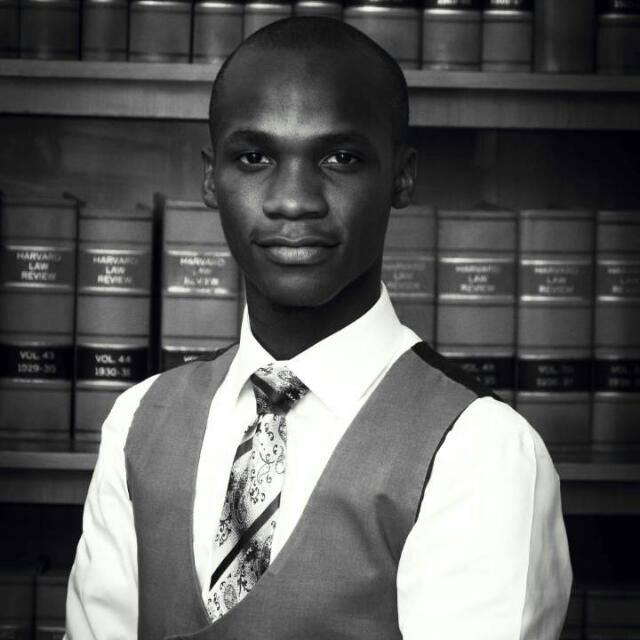
Fantbabs: Good day, sir. Can I meet you?😊
Alufa: My name is Temijuopelo James Alufa. I am a final-year student of the University of Ibadan, Ibadan. I currently intern at Babalakin & Co. Legal Practitioners. I am absolutely interested in international law and arbitration; and in the intersection between law and technology. This is why I am a co-founder of ImperiumIX Nigeria, an information technology platform that provides certain goods and services for students and professionals in Nigeria and all over the world. We help them see how technology can go into different aspects of their professions. Hopefully, as the year rolls by, we’ll be executing some projects and releasing them to public domain.
With my friends, I published a document titled, Black & White: A Compendium of Legal Thoughts, which involved compilations from students in the University of Ibadan, Ibadan; University of Lagos, Akoka; Obafemi Awolowo University, Ile-Ife; Ahmadu Bello University, Zaria; Babcock University, Ota; Makerere University, Kenya; the University of Sheffield in the United Kingdom; and other universities. We compiled legal papers that talked about very, very strange situations in our society and what the law had to say about them. The foreword was written by Prof. Oluyemisi Bamgbose (SAN). We had recommendations from the Chairman, Nigerian Bar Association (Ibadan Chapter), Dr. Akintayo; from scholars in the University of Kent, Harvard University, Oxford University; from firms such as Babalakin & Co and Olaniwo Ajayi LP; and from the United Nations. We published an e-copy on SSRN here. We’re making plans to publish it in hard copy.
F: Tell me about your background. How was growing up like for you?
A: I was born in Lagos to the family of Mr. Akinwumi and Mrs. Oluremi Alufa. My dad is a teacher and an educational consultant while my mum is the head teacher of a school in Abuja. I did my kindergarten and part of primary school in Lagos, first at Bright Shepherd, then at Eton International School as well as Queen’s Choice in Lagos. Then, because my dad had to go work in another country, we moved to Doha, Qatar, where I continued my primary school education and did part of my secondary school education.
I think my schooling abroad influenced a lot of my decisions, especially as regards the course I am studying now and certain skill sets I have chosen to develop– public speaking, writing, proper thinking and decision-making. I used to think of my growing up as torture. But now, I realize how absolutely fundamental it was for me to have grown up that way and how much it has helped. I remember not growing up with any game console. The only games I could play were board games. Any time I requested for games, my dad would buy me books instead. So, I grew up on a lot of Enid Blyton books. Those books kinda informed my early conception of morals before I got a grasp of the biblical perspective. My notions of a man or woman’s greatness were formed then. I noticed I picked up certain behavioural characteristics from my dad. For instance, my dad would be alone in the living room muttering to himself and, when I asked why, he told me he was thinking aloud on the books that he had read. I started to read the books that he read. I moved from reading Enid Blyton’s books to reading the biographies and autobiographies of different world leaders. I remember that, every single Saturday, he made me read to him a report of one historical figure he had made me write and would make me keep it in a folder. Those activities now form my core values even regarding work ethics.
From my mum, I learnt interpersonal skills and how to relate properly with people. I remember she would make sure I learnt proper etiquette, how to correctly read people’s body languages. When my dad returned to Nigeria, I continued my secondary school education in Lagos before proceeding to Abuja, where I completed my secondary school education. My background made me value the importance of hardwork in achieving anything; that it doesn’t matter how much you pray, there are certain natural laws that need to be respected for your efforts to be translated into success. It made me realize that I could not make what success was in the past the yardstick of my success today because the opportunities my parents were open to are not the same opportunities that are currently open to me. Whatever success they achieved at a particular age, I must surpass it much earlier than they did.
F: How many attempts did you make before Law clicked?
A: Law clicked once when I applied. Thanks to God.
F: So you were one of those geniuses that had straight As in their ‘O’ levels?
A: If geniuses are the ones with the straights As, then I’m not in that cadre😂. I had As and Bs in my ‘O’ Level.
F: 😂😂😂 We all know you’re a genius sha.🙌
Was Law always the course you wanted to study? If yes, why? If you were influenced in any way, what course did you have in mind originally?
A: I grew up being science-oriented. I remember, as a child, I wanted to be an aeronautical engineer or a neurosurgeon. All that fizzled away when I travelled abroad. There was a teacher, Mr Jabiz Raisadana, who made me realize that there were other skill sets that I had. So, he gave me lots of books to read and engaged me in writing activities. I participated in model United Nations and activities along those lines. I figured that the skill sets required in those tasks were more dynamic than the skill sets required in the professions I wanted to pursue. I remember trying to find out what profession exactly could encapsulate all the skill sets that I thought were dynamic and I loved exhibiting, and I remember seeing Law on the internet. I talked about it with my dad for a while. He agreed that it checked out with my personality. I do remember feeling disappointed for some time, thinking that I may be losing out by dumping those dream professions of mine. But then, as I went further in Law, I realized that I just would not have been fulfilled in those areas.
F: Now, you said reading that Enid Blyton books shaped your views of morality at a tender age. Now that you are grown, is there any of those views that you have come to reject or oppose?
A: Enid Blyton focused heavily on the act of giving (sharing with friends and neighbours). That isn’t something I reject or oppose now. I think that it is totally commendable; something that should be aspired for. And it’s just so sad that, as we grow older, the society seems to teach us to give, not because we care so much, but because of what it says about our character, on how we are viewed by the public. That’s why certain people may be involved in charity foundations. It’s because of how it looks good for them. I think that is wrong. But, thankfully, the act of giving is, at least, happening. Better than when people don’t see the need to give at all. It’s still a view I support.
F: From your background, you said you learnt important things like what made a person great. Tell us what parameters there are in deciding a man’s greatness.
A: I don’t think I am experienced in life enough to categorically answer that question. And I say this because I do feel that you need to have gone through life experiences for a greater portion of your life span before you can answer from an experiential perspective what greatness means. However, I think that one parameter that I do not need to be experienced in life enough to be able state– which I know for a fact– is God. I realized that, while many people say that we should look inwards and find our own definition of greatness, it’s normally not realistic. We are in a society, not in a solitary confinement, and instinctively, we are going to be judging our greatness based on the greatness other people. So, I dare say that there is an objective test to measuring what greatness is, from the society. But what would make us not go insane while we’re looking at the society to measure how far we have gone is anchoring ourselves on God for us to understand where we fit in the schematics of life so that we can better serve the people around us.
F: In this break, I’ve been spending a lot of time thinking and muttering to myself too.😀 One of the things I’ve thought about is my love for God. I realized that, honestly, the reason I chase after God and his kingdom is because I know it will pay me. It’s for my personal gain. I give, I obey God because I want to be on God’s good side. I want to be on God’s good side because I know what happens to those on God’s bad side. So it dawned on me that the concept of selflessness is very subjective, open to questions and possibly inexistent. Now, you talked about Blyton’s books and how they spoke of man’s love for other people’s respect, which is why they give and act in certain ways. Do you think it’s possible to do anything that is truly selfless, to give and not to, in the minutest way, expect anything (respect, appreciation or blessing from God or men) in return?
A: I think that you’ve been spending your break very well if you’ve been going on that kind of thought journey. If I am going to be fair on humanity, I would say no to your question. It is not humanly possible to do anything that is truly selfless. But yes, it is possible for a man to do an act selflessly. Now, that might appear contradictory but it’s not. As men, a part of us believes in the logic of cause-and-effect; that things must link to make sense. So, we believe that, when we do something, there must be a response that validates the quality of that act. The difference might now be in the kind of response different people want. While one person might give selflessly and say no, he doesn’t want to be recognized, that man will still be interested in knowing that what he did has indeed blessed somebody and wants to see the smiles on that other person’s face. Another person might say, ‘Yeah, sure, I don’t mind being recognized.’ So, yes, I think a man can do something selflessly but it has to be based on divine energy– divine power– because only God, who gave us his only son, can do something that is selfless. For a man to do a selfless thing without needing any form of response to validate his act of selflessness, it has to be based on divine power and love.
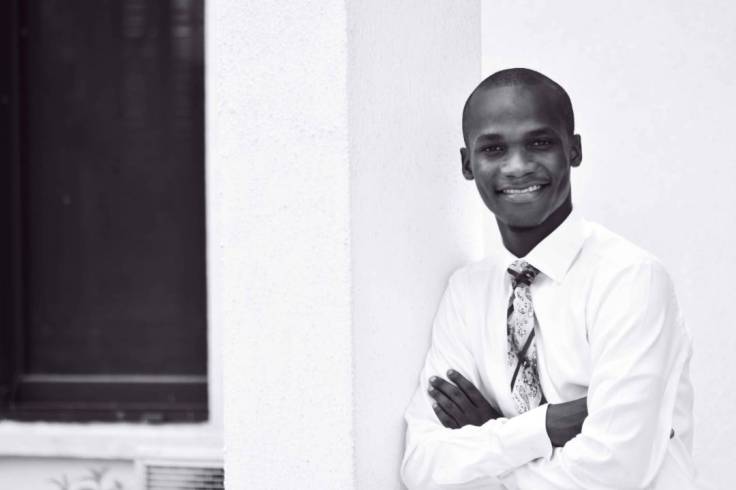
F: So you think God is the judge of who’s great and who’s not? How does he decide that?
A: I think that God’s judgement of who’s great and who’s not is what we should be bothered most about. If you believe in a God that exists and you believe that he created you, then it is logical for you to be more concerned about the validation of your Creator above that of created beings. I feel that how he decides that (who’s great and who’s not) is simply his son. If we can be like Jesus, then, in essence, we have measured up to God’s criteria of what greatness is. The onus now lies on you to find out how Jesus was great in areas like finance, politics and civic participation without necessarily being religious about it.
F: Through the years, what has come to be your definition of purposeful leadership and success? What has leadership taught you?
A: Over the years, what leadership has taught me are basically, one, the fact that leadership is service to humanity– glorifying others above yourself– and, two, it is about solving a need in humanity. If you’re not fixing a direct issue, then, to me, you’re merely going to be adding to the story of others.
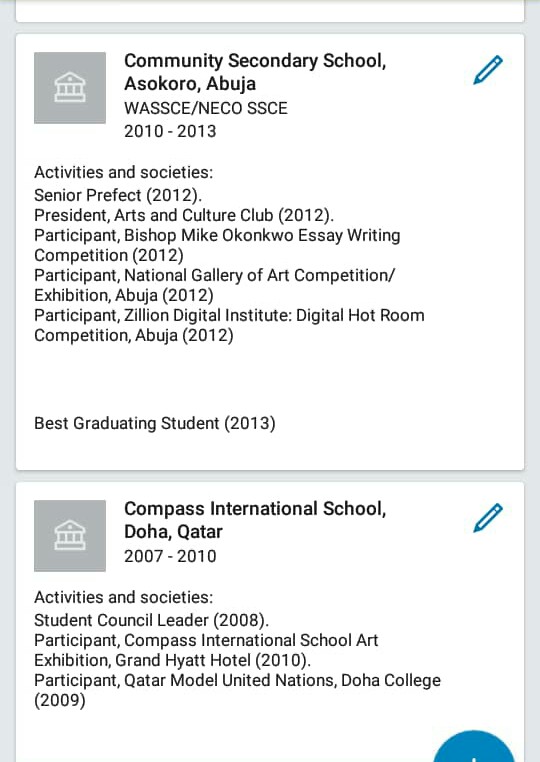
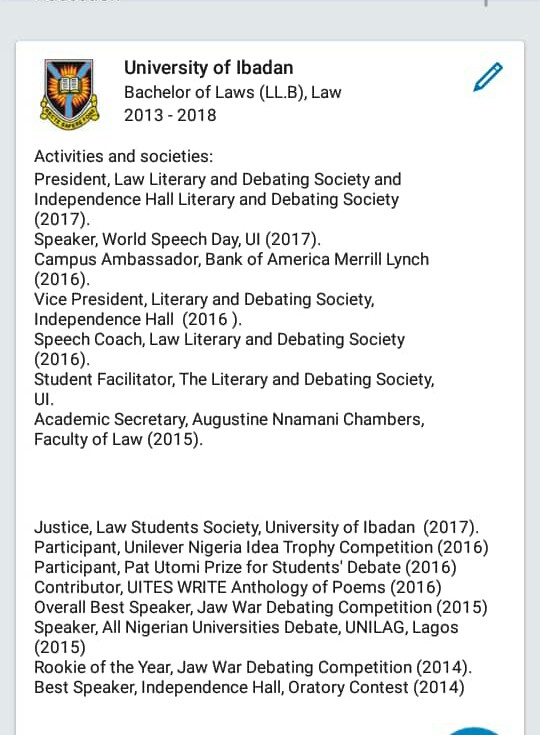
F: What are the general principles of life or policies that Alufa James Temijuopelo lives by?
A: God. Love and loyalty. Hardwork. The use of intellect. Service to humanity. Giving. Honesty.
F: What does public speaking mean to you? What effect do you think it has had on the University of Ibadan?
A: In UI, I started this mantra, ‘Public speaking is life.’ I tell people that it’s simply breathtaking to see just how influential a person can become by harnessing the skill of public speaking. It is a skill that cuts across every single sphere of life. I think the university has had more effect on me than I have had on it. This university has produced so many great public speakers and this is why the university is a formidable force in public speaking. In my little way, I have tried to show people the value of logic in public speaking, how important it is to make sure that your ideas and communication are connected necessarily and they flow from one another and you sound intelligent. I have tried to show people why we should not compromise intelligence because we want to play to the gallery.
F: How did your public speaking journey in UI begin?
A: I think the very first time I spoke in front of the public in UI was in my chamber– the reputable Augustine Nnamani Chamber. I had the opportunity to share the stage with the great Afam Ikeakanam. We were asked to talk about the similarities and differences between the legal system in Nigeria and that of the United Kingdom. I remember the Vice President of Law LnD at the time, Joy Obah, was in that chamber. She told me to consider joining the L&D. I laughed because I was only interested in reading my books. On the day of the interview, I saw many of my friends lined up, and I laughed it off. As I was walking to my hall of residence, the Great Independence Hall, there was a lady on high heels walking directly in front of me along that road that leads to Zik river. It suddenly seemed like her heels were rhythmically sounding, ‘L and D; L and D.’ I just stopped abruptly and ran back to the Faculty. When Joy Obah saw me, all sweaty, she laughed and said, ‘Oh! Now you want the form?’ I answered yes, got the form and joined the L & D. I was trained by great public speakers like Sunday Fadipe and Ahams Kizito. Under Kizito’s leadership, in my 100 level, I got the opportunity to represent the Faculty of Law in the first year that Jaw War was restarted at the First Bank Building.
F: Osheyyy. Best chamber.💪 Do you think public speaking occupies the pride of place it deserves in UI?
A: I think as the years go by, we have started seeing an unprecedented support for public speaking in the university such that public speaking, when it started, isn’t what it is today. We are seeing more people in the school community– lecturers and students alike– showing more interest in student public speaking activities. I mean, at last year’s Jaw War, we saw a massive level of support from people. I think the pride of place public speaking has in the university is constantly growing. I believe we can still do more with respect to public speaking. I believe that, as a university, we can participate in more competitions within and outside Nigeria. I also think that the public speaking culture among the audience can also develop. Inasmuch as we want to entertain people, I think people should also be interested in being educated for us to truly have a refined public speaking culture in the university.
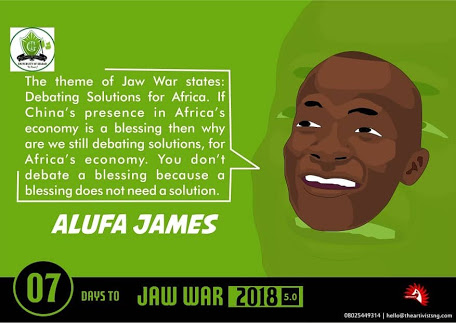
F: What other things need to be done to have the Jaw War you desire?
A: Jaw War has improved considerably. I won’t say we’ve been having the best quality of topics, though, because some of the topics that came up last year were quite questionable. But we have had considerable improvement in audience turnout, in the quality of planning for the event and in the theatrics of the event. I think that the last Jaw War was a good attempt at improving the quality of judges invited for the event.
For us to have a proper public speaking competition, I think we need judges that are absolutely independent and impartial and have no relation or connection whatsoever to the University of Ibadan, unaware of what style the audience seems to want but simply focused on the quality of speeches. We also need to have a better audience culture. I say this because last year was a very, very interesting experience for me. It was the year when my stuttering caused a lot of uproar in the audience. It got me thinking that what it really means is that the standard of our public speaking has gotten to a point where, from the very beginning of your speech to the very end, there must be no form of stuttering– it must be flawless. That is a good challenge, actually, that would make speakers aspire for a perfect delivery, but I do think that, regarding audience response, for Jaw War to get to that point of professionalism seen in debates conducted in schools like Oxford, Cambridge and Harvard Universities, we must get better in reacting to speakers faltering. We have to give a level of respect to the speakers and to the craft itself, recognizing that it is a formal occasion. When people begin to be more focused on the topic and the speeches and not the politics involved in them, Jaw War will greatly improve.
F: You were in 200 level when you won the award for the overall best male speaker of the Jaw War tournament that year. How did you feel, defeating the ones who had been in the public speaking craft before you (supposed seniors) to clinch the award?
A: I was surprised. I wasn’t aiming for it; I was just having fun. So, it was surprising to see it happen.
F: Would you say your defeat to a 200-level student in the Faculty of Education at the finals of Jaw War last year was Karma playing a fast one on you?
A: Well, I don’t know about being defeated by a 200-level student. I do recognize the fact that, based on the judgement in the finals, the Faculty of Education defeated the Faculty of Law. To say that– (almost laughing)— I was defeated by a 200-level student and asking whether it was Karma– (laughing)— is funny. It’s funny because it would bring up the question of assessing the content of our speeches and the general performance outlay. I don’t think it was Karma’s doing; I just think that he worked hard and he deserved it– it was quite evident– throughout the competition. In the schematics of things in the university, it was his time and he was recognized and rewarded for it. That is commendable. So, I don’t particularly feel any pain as regards that at all.
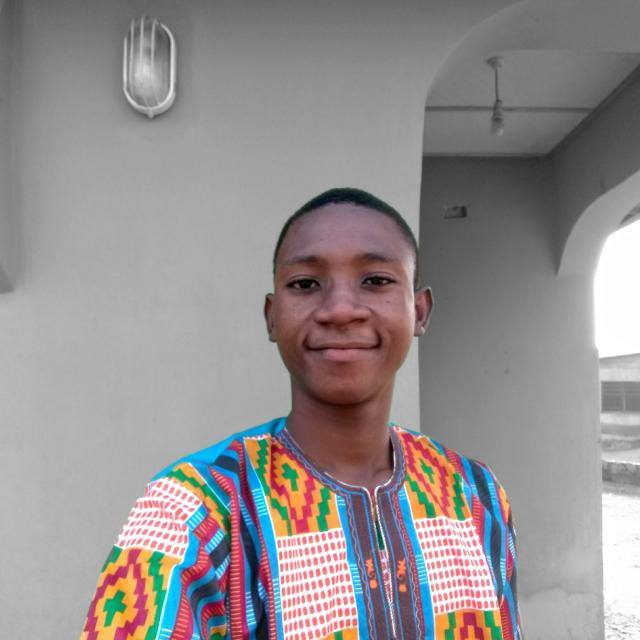
F: Mature.👏👏👏👏
Last year, a number of people thought that you had gotten ‘rusty’ and you should not have represented Law at the finals of Jaw War after what they thought were two previous appearances that were not so good. What would you say to them? In fact, do you think there is such a thing as a public speaker getting rusty?
A: It was a general statement (before the finals of the last Jaw War) that I had gotten rusty based on my previous performances. While that may be true for some people, if I would do a personal reflection, I would ask to know what basis on which people based their claim that I had gotten rusty and it would likely be on the basis of the fact that I stuttered while I was speaking or there were points when it seemed I had gone off-point and I had to re-articulate my sentences. The question would then be if those reasons were valid enough to ground the claim that I had gotten rusty. If accepted as true, that would mean that, in earlier times that I had spoken in past Jaw Wars, I never stuttered or paused at any point to re-articulate my sentences. That would be a lie– there were many times in my 100, 200 and 300 levels when I did stutter and pause to re-articulate my sentences. There were even times when I forgot lines. But the reason people wouldn’t think of all that is because the moods of people are subjective with times. So it made for a nicer story to say that, ‘Alufa has gotten rusty.’ I have heard people say that, because of how much ‘hype’ that had trailed my name, they expected some flawless manner of speaking. I cannot apologize for that sort of thing because it would be me trying to satisfy people. Given the fact that there were some final-year students that completely forgot paragraphs in their speeches, that made for a good rhetoric.
It was a funny thing for me to come to terms with. I say that because, if you start to listen to people alone without doing your own personal reflection, you will start to believe their reality. It was becoming dangerous because I started believing that for a while until I realized that it was nonsense.
Yeah, sure, I think that a public speaker can get rusty. Public speaking is a skill. If you do not practise it well enough, you can get rusty with it. This will now beg the question of whether I had been out of practice in public speaking such that I had become so rusty that my performances were so appalling. And the answer to that would be no. I should add that I didn’t originally want to speak in my final year. In fact, I felt that I had had enough of the public speaking image and I wanted to move on from that to explore other areas. I felt that it was time, which was why I undertook certain projects. However, the reason why I spoke was because I was influenced by the leadership of the Faculty of Law LnD. I remember Dara Olaniyan, Law LnD’s Speech Coach, calling me, reminding me of something I said years ago that, regardless of how good or bad a public speaker is, he should not be worried about his image; he should simply speak because he likes to. If I chose not to speak because I felt I should leave when the ovation was loudest, it would mean that I cared about my image. Now, to a large extent, that was true. But I realized from speaking with the leadership of Law LnD that it meant more to me to serve the society as it became apparent from the fixtures we had made that someone had to come in to fill up the gap that had opened. I ran it by a person that is close to me and she told me to pray and think about it. Some other people I ran it by felt I was making a mistake. But I made up my mind that, regardless of how things went, I would serve the house that has given me a platform to be recognized.
F: Dara wee now be feeling himself.😏 So you prayed and God gave you a go-ahead?
A: Yeah, after I prayed, I felt a certain level of peace regarding my decision. It is why I can now make peace with the outcome of that decision.
F: We confirmed that you were once a first-class Law student. What were the circumstances that led to your not being that anymore?
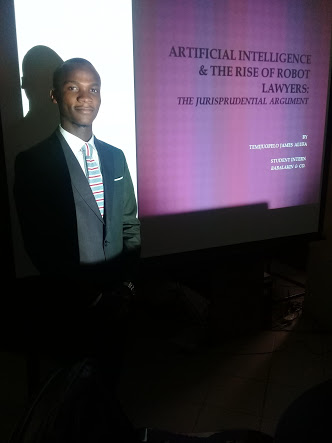
A: I had issues as regards the computation of my results, which though later rectified, still affected my CGPA (cumulative grade point average). Apart from that, I did not put as much focus in my academics as I should have. I was also trying to to find myself as an individual and as a man. That affected my academics quite significantly.
F: By saying you had to discover yourself as a man, what do you mean? Do you mean you went after ladies?
A: Well, I wasn’t running after ladies. If I did, I don’t think I would be where I am today at all. I would have made a total fool of myself and jeopardized my future. By saying I was discovering myself as a man, I meant that I was trying to discover how I could best mange my relationship with people (women included) as responsibly as I could. I was figuring out how to be disciplined and honest. I went through various experiences that tested all of that, that made me realize that I needed to have self-confidence and self-definition, which were anchored on a good belief system that would make me capable enough to face certain experiences.
F: You seem to have stayed away from student politics. Why is that so? What do you have to say to students who give too much attention to student politics in relation to their academics?
A: I stayed away generally from student politics because I never really enjoyed the concept of student politics. I always felt that student politicians weren’t really focused on solving the issues. They were focused on attaining popularity, enjoying the benefits of office and liked to be regarded as revolutionaries since they possessed the fight-the-man-upstairs mentality. I felt there were so many ways I could impact the society without necessarily joining politics. I felt joining initiatives and starting foundations were much easier than trying to play to the gallery and shouting here and there for the attention of people. You could simply get the attention of people by solving their problems straightaway without shouting about it.
This is not to say that I have not been impressed or my mindset hasn’t been shifted by a number of student politicians who have actually impacted their societies positively.
F: On student leaders, from your perspective, for the sake of your name and for posterity, how did the controversies that were rife during your tenure as an honourable judge of the Law Students’ Society Judicial Council, UI about the relationship of the 3 arms of the LSS all begin? Controversies such as that which surrounded the suspension of the then LSS President, Miss Taiwo Adedoyin Kausara (where a classmate of yours representing the 500-level class in the Law Students’ Representative Council, Mr Tobi Olanipekun, claimed there were threats to his life from the LSS President), the LSS budget of the 2016/2017 session and that of the LSS dinner of that year, the rumoured disrespect of the LSS executives to the Judicial Council in the appointment of current judges, and the talk about your presidency of Law LnD while being nominated as a judge.
A: As a matter of judicial ethics, I choose not to comment on these issues but I would say that I did my best as a judge to try to apply the tenets of the laws guiding our LSS to whatever fact I was presented with and the issues that came up during these periods only prove just how dynamic and alive politics is in our Faculty.
F: So, even though you know how far-reaching certain rumours, controversies, half-truths and stark lies can be and that this interview would be put online where people can always make reference to it, say they wanted clarification straight from you, you are simply not going to comment and clear your name, setting the record straight once and for all?
A: I think the mere mention of the fact that they are only rumours, controversies, half-truths and stark lies is one core reason why I don’t need to comment. I don’t think, to the best of my knowledge, there is anything I need to clarify my name on. I have done nothing in the performance of my duty in the LSS that has brought to question the integrity of my name. In this regard, I think that my honour is intact and it is unnecessary to clarify anything.
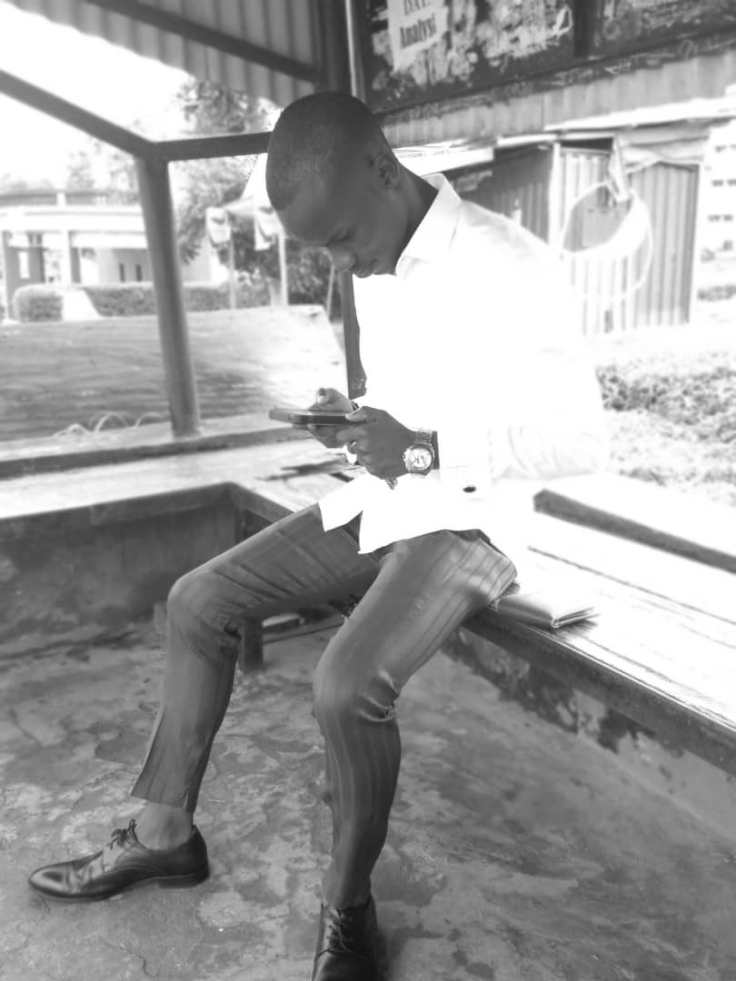
F: As we approach the 2019 polls, what do you think is the way forward for Nigeria?
A: I think there’s a huge dichotomy between people who are literate and intellectual enough to appreciate good leadership and people who are not literate enough to understand the concept of good leadership and what it requires. There is a lot of talk among students, intellectuals and the elite surrounding what and how things should be done without us actually understanding that, in our democracy, there are candidates other than the ones that are popularly known (and not even for good reasons). It’s very paradoxical that Nigerians can identify their problems yet we simply do not want to take the step to change things because we think it would be futile. There is a deep culture in our country that believes that we are so corrupt that we are beyond redemption and that there is no point trying to change the status quo because it would just end up being a pebble in a large ocean. I wonder that if every single person thinks this way, then there can be no change. So, there needs to be an understanding that, no matter how little every single person thinks his effort to change the country seems, it counts! And if every Nigerian can think that way, then all the efforts can be pulled together to form a single deciding force.
F: What do you do in your leisure?
A: Among others, long walks, and bowling.
F: Who’s the Lion or Lioness that has your lion heart?🙂
A: Skip please.
F: No o. This you cannot skip. Are you in a relationship?
A: I am in a relationship.
F: With who?
A: I respect my partner’s privacy and I choose not to disclose.
F: Lol. Okay. Thank you very much, Alufa!😊
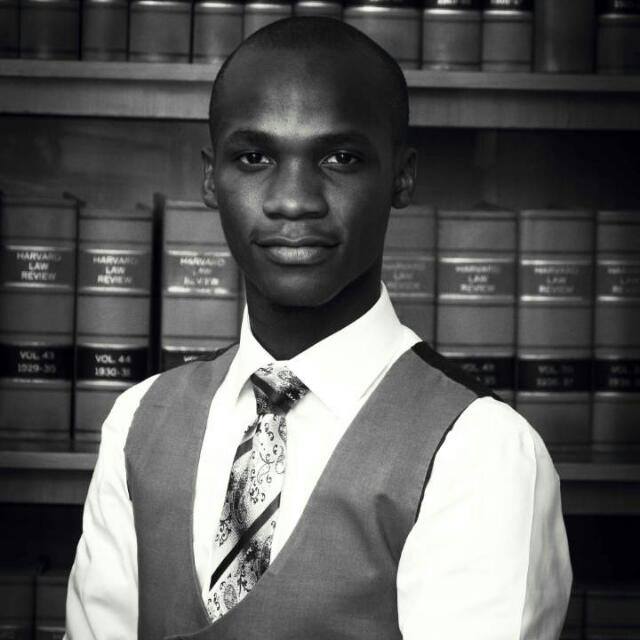
Barnabas can be so extra in this life😐. Nice one though ✨
LikeLiked by 1 person
Because I’m extraordinary. 😂😂😂
Thank you so much, Diran. I really appreciate. God bless you!
LikeLike
I have one statement for all of this. “ALUFA IS INTELLIGENT”
weldone Barnabas
LikeLiked by 1 person
I agree, Esther.
Thank you so much. I appreciate.
LikeLike
Read every bit to the last word. This is awesome Barny😊.
Keep up the good work!
LikeLiked by 1 person
Kai! Thank you soooooo much, Favour. I’m so honoured.
God bless you! On keeping it up, I’ll definitely try! Thank you, again.
LikeLike
“I ran it by a person that is close to me and she told me to pray and think about it”
Hmmm God bless her
Alufa, I respect you because you do not take things for granted and your versatility.
LikeLiked by 1 person
We all do. Thank you, Izu.
God bless you!
LikeLike
An interesting one Barney!
LikeLiked by 1 person
Lovely, perspectives from Alufa ‘shows’ -not just mere ‘say’ – that he is logical and intelligent. Greater strides man.
Riveting interview 🙂
LikeLiked by 1 person
Very correct. Thank you for this lovely comment. I appreciate.
God bless you.
LikeLike
I’m glad you found it so.
Thank you, Julie. God bless you!
LikeLike
Lovely one from you Barny
LikeLiked by 1 person
Thank you for saying that, O.J. I’m really grateful.
LikeLike
My guy, Alufa! Never disappoints….I trained him well. Thumbs up son
LikeLiked by 1 person
Lol. Thank you so much for reading. God bless you!
LikeLike
Wonderful interview Mr. Babs.
I must confess that Alufa James is a complete package of brilliance and intelligence.
Well done, Babs.
LikeLiked by 1 person
He really is… Thank you for reading. Really appreciate!😊
LikeLike